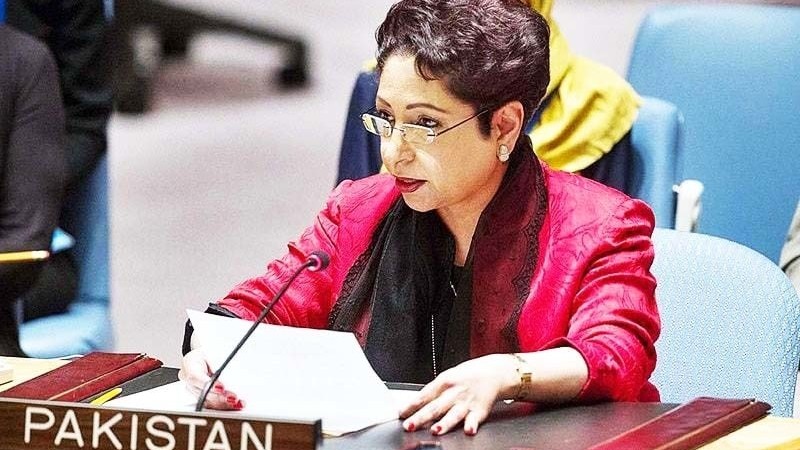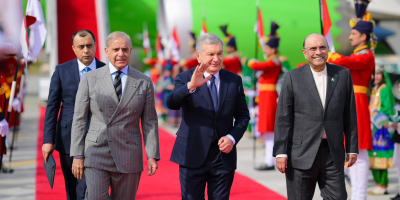Pakistan demands immediate cessation of US drone strikes

UNITED NATIONS, 02 JULY (DNA) – Pakistan has demanded an immediate cessation of drone strikes that violate the territorial integrity and sovereignty of States, saying such attacks also breach the fundamental rights of the victims and further fuel violence and extremism.
Speaking in the U.N. General Assembly, Ambassador Maleeha Lodhi condemned the continued use of drones and described it as blatant disregard of existing international commitments on the use of remotely piloted aircraft
She was elaborating Pakistan’s position after the adoption by the 193-member Assembly of a resolution on the UN Global Counter Terrorism Strategy.
During the negotiations on the resolution spanning over a month, Pakistan is understood to have made strenuous efforts to further strengthen international commitments regarding illegal drone strikes and their impact.
Pointing to the progress in this regard, Ambassador Lodhi highlighted recognition by member states of the notion that counterterrorism measures violating territorial integrity and sovereignty of States can be counterproductive and also fuel violent extremism.
She emphasized that noting the conclusions and recommendations of the report of the Human Rights Council on the use of drones, was the first step in the right direction. The report raises legal questions on the use of drones, points out their grave impact on fundamental human rights and expresses serious concerns on how their use undermines counterterrorism efforts.
The Pakistani envoy welcomed the consensus on the resolution, which she said served as a strong and united signal against the scourge of terrorism. She also appreciated a renewed focus on the preventive approach to terrorism, which included addressing the root causes of terrorism as well as the internal and external drivers of violent extremism.
Ambassador Lodhi said that for Pakistan, such an approach was closely linked to promoting a culture of peace. The UN Declaration and Plan of Action, now included in the resolution, at Pakistan’s initiative, stresses the need to resolve protracted conflicts, ensure full realization of the peoples right to self-determination and addressing Xenophobia and all forms of discrimination on the basis of religion, culture and ethnicity.
In the resolution, as an active member of the Organization of Islamic Conference (OIC), Pakistan was also able to mobilize support to revive the international community’s focus on ending foreign occupation, resolving conflicts and confronting oppression, as well as enhancing intercultural understanding and ensuring respect for all religions and religious values.
The Global Counter Terrorism Strategy, adopted in 2006, is considered as the single most comprehensive and consensus-based counterterrorism strategy in the United Nations. It is reviewed every two years by UN Member States, through a resolution that seeks to develop understandings and measures, in particular regarding new challenges and developments. It represents a broad consensus on the mutually shared goals and principles in the global fight against the scourge of terrorism.
By the terms of the resolution, the Assembly affirmed the importance of integrated and balanced implementation of all four pillars of the Strategy: addressing conditions conducive to the spread of terrorism; preventing and combating terrorism; building the capacity of States and strengthening the role of the United Nations; and ensuring respect for human rights and compliance with the rule of law.
Also by the 72-paragraph text, the Assembly urged all Member States, as well as the United Nations, to unite against violent extremism, as and when it was conducive to terrorism. It called upon Member States to strengthen international, regional, subregional and bilateral cooperation in countering the threat posed by foreign terrorist fighters, to engage with domestic financial institutions and share information on terrorist financing risks, and to adopt legal measures for the prohibition of incitement to commit terrorist acts.
Further, the Assembly called for enhanced engagement by Member States with the work of the Counter-Terrorism Implementation Task Force, and for greater coordination and coherence among United Nations entities and with donors and recipients of efforts to build counter-terrorism capacity. The Assembly stressed the significance of a
sustained and comprehensive approach to addressing conditions conducive to the spread of terrorism.
Opening the two-day debate, Secretary-General Ban Ki-moon called on the international community to act with unity and resolve to deal with the unprecedented levels of terrorism and violent extremism across the world.
“We have an urgent moral duty to do all we can to prevent and end this carnage,” the Secretary-General said. “Taking collective preventive action against terrorism, in the spirit of our United Nations Charter, is the only way to secure peace and prosperity for succeeding generations,” he added. DNA
Related News

US lawmakers accuse Bondi of hiding names of Epstein associates
NEW YORK, FEB 12 /DNA/: A Republican US lawmaker on Wednesday accused Attorney General PamRead More

Uzbek President Mirziyoyev in Islamabad for a two-day state visit
Asnar M Bhatti ISLAMABAD, President of the Republic of Uzbekistan Shavkat Mirziyoyev on Thursday arrivedRead More


Comments are Closed